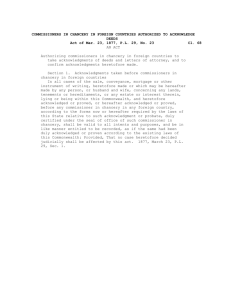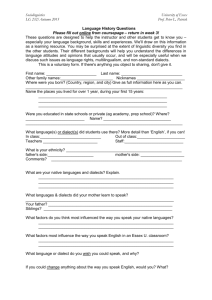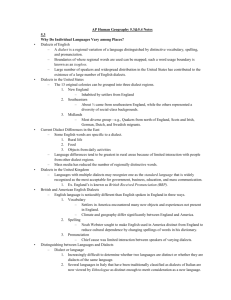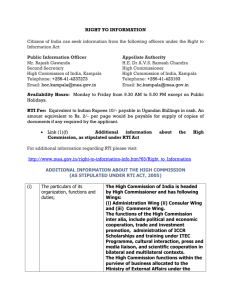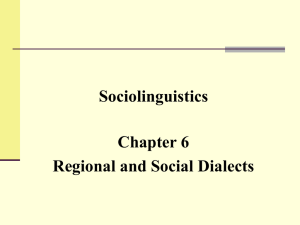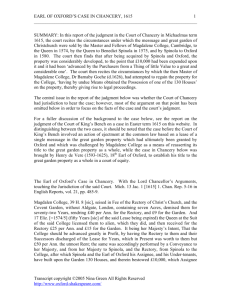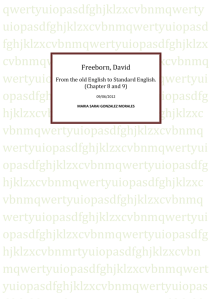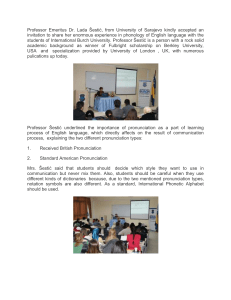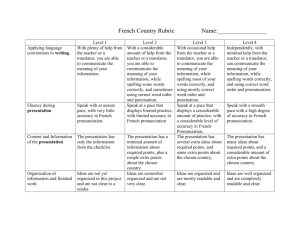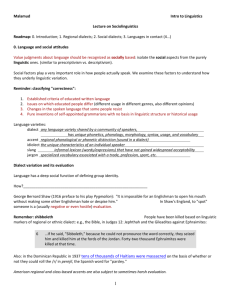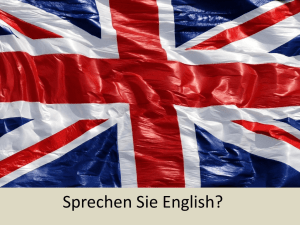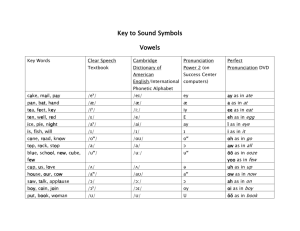Bibliografía
advertisement
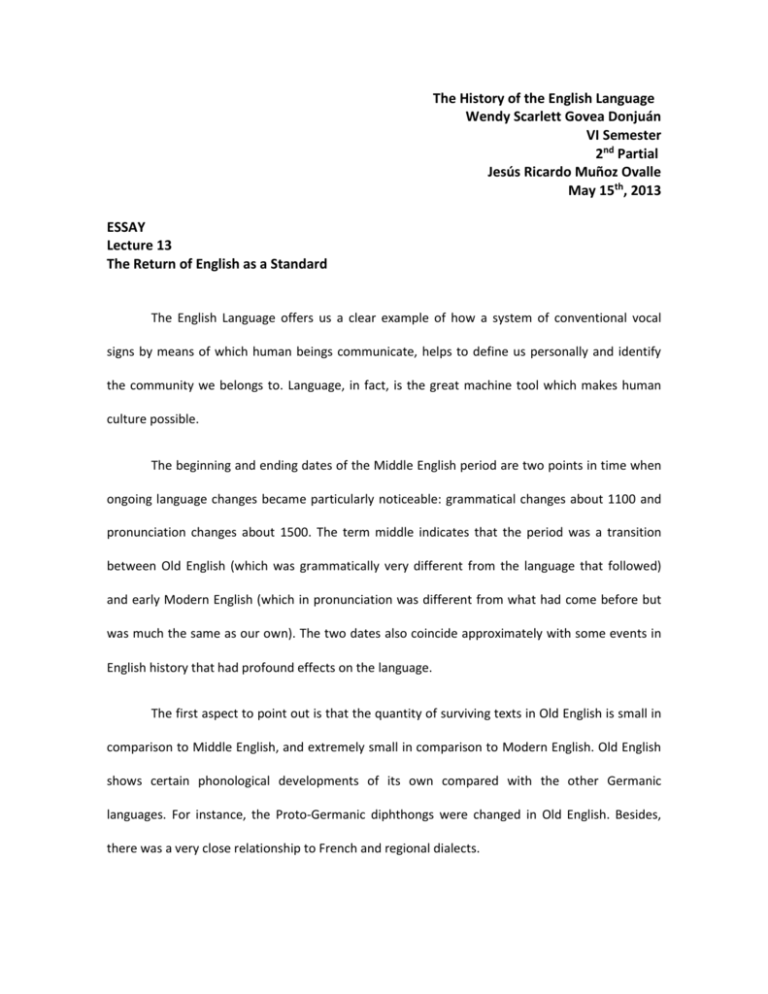
The History of the English Language Wendy Scarlett Govea Donjuán VI Semester 2nd Partial Jesús Ricardo Muñoz Ovalle May 15th, 2013 ESSAY Lecture 13 The Return of English as a Standard The English Language offers us a clear example of how a system of conventional vocal signs by means of which human beings communicate, helps to define us personally and identify the community we belongs to. Language, in fact, is the great machine tool which makes human culture possible. The beginning and ending dates of the Middle English period are two points in time when ongoing language changes became particularly noticeable: grammatical changes about 1100 and pronunciation changes about 1500. The term middle indicates that the period was a transition between Old English (which was grammatically very different from the language that followed) and early Modern English (which in pronunciation was different from what had come before but was much the same as our own). The two dates also coincide approximately with some events in English history that had profound effects on the language. The first aspect to point out is that the quantity of surviving texts in Old English is small in comparison to Middle English, and extremely small in comparison to Modern English. Old English shows certain phonological developments of its own compared with the other Germanic languages. For instance, the Proto-Germanic diphthongs were changed in Old English. Besides, there was a very close relationship to French and regional dialects. The English language, during the late 14th and eraly 15th centuries, seemed to return as a prestige language. In this time, English reasserted itself after the decline of French. Actually, English did not disappear after the Norman Conquest; it was used as a vehicle for imaginative expression. The translators deliberately used-archaic-sounding, actually English was used for political effects; for example, The London Brewer’s Guild adopted English as its official language of record in 1422 and Shakespeare went so far as to present Henry V as not even conversant in French, an example of the rewriting of history. This is part of the growing body of evidence that by the end of the 15th century, French became less and less the language of culture and social prestige. Despite vast changes in vocabulary and pronunciation, English speakers of the 16th century were unaware that they were leaving the Middle English period and entering the Modern. All such divisions between stages of the language’s development are to some extent arbitrary, even though they are based on clear and significant internal changes in the language and also correlate with external events in the community of speakers. The word stock of English was expanded greatly during the early Modern period in three ways. As literacy increased, a conscious need was felt to improve and amplify the vocabulary. As English speakers traveled abroad, they encountered new things that they needed new words to talk about. And as they traveled, they increasingly met speakers of other languages from whom they borrowed words. The second half of the 11th century is the transitional period from Late Old English to Early Middle English. Early Middle English is the language of the 12th and 13th centuries. Middle English is fully developed as a literary language by the second half of the 14th century. A standard form of English accompanied the rise of the institution known as “Chancery”. Chancery comes from the word chancel, or chapel of the king. Chancery English contributed to the development of a form of writing that was a standard, irrespective of the speech or dialect of the writer. Chancery Standard was largely based on the London and East Midland dialects, for those areas were the political and demographic centres of gravity. However, it used other dialect forms where they made meanings clearer; for example, the northern "they", "their" and "them" (derived from Scandinavian forms) were used rather than the London "hi/they", "hir" and "hem." By the mid-15th century, Chancery Standard was used for most official purposes except by the Church (which used Latin) and for some legal purposes (for which Law French and some Latin were used). It was disseminated around England by bureaucrats on official business, and slowly gained prestige. The early printer Richard Pynson in the late 1490s and early 16th century favored Chancery Standard in his published works, and consequently pushed the English spelling further towards standardization. This period was of tremendous importance due to the political, economic, and social changes. The language and the emergence of many different spelling systems emerged marked great changes in the history of English. Little by little, because of the importance of the documents written there, Chancery English began to be considered as the standard: spelling was standardized without regard for pronunciation, the official language ceased to represent any living spoken dialects, and writing became truly conventional and arbitrary. Bibliografía Charles Barber, J. C. (2009). The English Language. A Historical Introduction. Second edition. New York, United Sates of America: Cambridge University Press. John Algeo, T. P. (2010). The Origins and Development of the English Language. Boston, United States of America : Wadsworth, Cengage Learning . Lerer, P. S. (2008). The History of the English Language , 2nd Edition . Chantilly, Virginia: The Teaching Company .
